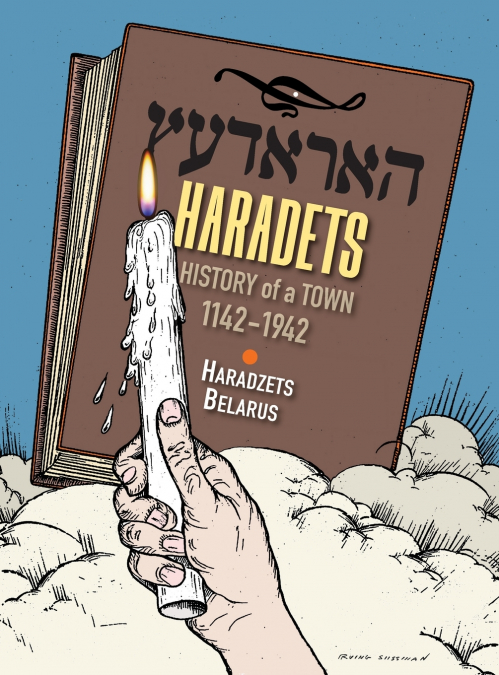
Gorodets (present day Horodzets, Belarus) was a small but commercially busy town in southwest Belarus situated along a major railway line about halfway between Brisk and Pinsk. It was home to 254 Jews in 1766, a number that grew to 648 (among 1761 non-Jews) in 1897. The town had been absorbed into the Russian empire in the late 18th century until it became part of Poland after World War I when it was reestablished as a republic. The Soviets annexed it in 1939 giving way between 1941 and 1944 to the Nazi occupation. Belarus became and independent Republic in 1991 after the breakup of the Soviet Union.Gorodets was an important center due to its canal and railway connections, and it was strategically located near rivers and forests, making it significant both economically and militarily, particularly in the late 19th and early 20th centuries. The railway helped spur commerce but the canal played a bigger role because it could be used to ship products through Kobrin, Brisk, Warsaw and Danzig. Large and small lumber and wood merchants from all over Russia would stop over for a few days and patronize Jewish stores and businesses.But this prosperity would come to an end. With the outbreak of the first World War, the canal lost its usefulness. The Jewish population of Gorodets, like many shtetls in Belarus, declined in the early 20th century due to emigration, economic hardship, and the devastation of the war. Two streams of emigration pulled Jews from Gorodets: one towards Eretz Israel and the second to South American countries like Argentina, Brazil and Cuba. The book recounts turbulent chapters in the town’s history. The historical overview of the town’s history includes a description of the evils and persecutions under the Tsar. 'Under the Polish Regime' tells of the hardships imposed on the community by saddling it with heavy taxes and ousting Jews from their occupations in favor of Polish farmers.As with so many other towns, the community came to an end after the Germans invaded. 'Jewish Gorodets is no more,' says a passage in the book. 'Even a gravestone is not left standing in its place. Empty is the town, desolate, destroyed. In one’s heart is a wound, a desecrated empty space.'